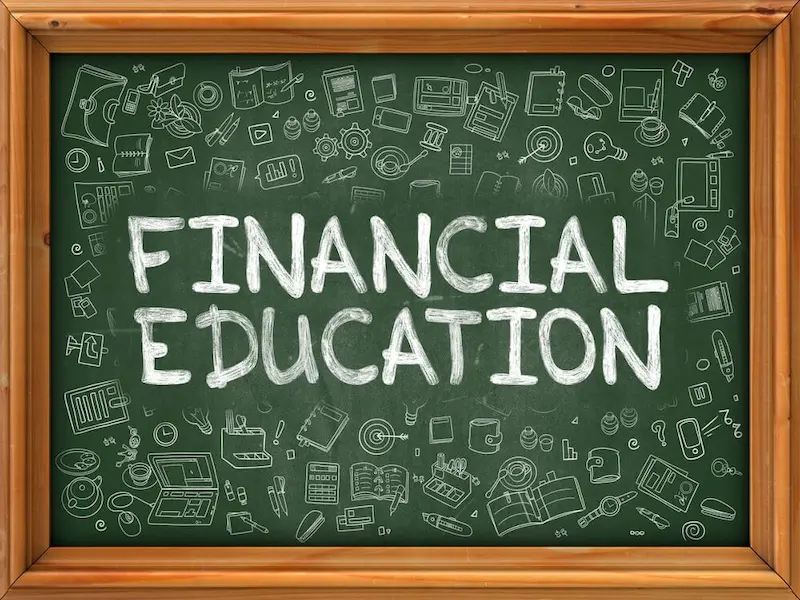Financial literacy is more than just a trendy term; it’s a crucial life skill. Being financially literate helps you make smart choices, plan for your future, and confidently handle money in our complex world. It’s about grasping the language of money, making wise decisions about how you earn, spend, and save, and ultimately achieving financial well-being.
In this article, improve your financial knowledge, not just for April, but for the rest of your life. We’ll cover everything from evaluating what you already know to involving your family. Let’s start this valuable journey and explore a range of activities that will boost your understanding of money and lead to your financial success.
Table of contents
- Setting the Stage for Financial Literacy Month
- 1. History and Significance
- Preparing for Financial Literacy Month
- Educational Activities
- Reading Resources
- Interactive Tools
- Family and Kids Involvement
- Community Engagement
- Financial Challenges and Contests
- Tracking Progress
- Financial Wellness
- Conclusion
- Frequently Asked Questions (FAQ’S)
Setting the Stage for Financial Literacy Month
1. History and Significance
Understanding the history and significance of Financial Literacy Month can inspire your commitment to improving your financial knowledge. It was first established in 2004 to promote financial literacy across the United States, but its impact has since resonated globally. This annual observance is a reminder that financial literacy is a shared mission, and together, we can make informed financial decisions that benefit our lives and communities.
2. Key Statistics on Financial Literacy
Before you begin, it’s essential to grasp the current financial literacy landscape. Surprisingly, surveys often reveal a lack of understanding in some important areas, such as basic budgeting, debt management, and retirement planning. Knowing this, you can appreciate the urgency of improving your financial literacy and taking control of your financial future.

Preparing for Financial Literacy Month
Take stock of your current financial knowledge. Maybe you are thorough with introduction to financial literacy, but what do you already understand, and where are the gaps? Identifying your strengths and weaknesses will be the first step to improvement. You might find that you’re already adept at budgeting but need more insight into investments or retirement planning. Recognizing these areas for growth will help you tailor your learning journey.
1. Goal Setting for the Month
Set clear, achievable goals for the month, setting goals is effective way for achieve your goals on time. These could include learning about investments, reducing debt, or setting up a retirement fund. Goals provide direction and motivation, and by the end of the month, you’ll not only have acquired knowledge but also tangible progress toward your financial objectives.
Plan your month. Allocate specific time for various activities, ensuring you have a structured approach to your financial education journey. By organizing your learning path, you’ll make the most of this month and set a pattern for continuous financial growth beyond April.
Educational Activities
1. Workshops and Seminars
Look for workshops at your local community centers, libraries, and universities. These workshops are a great way to meet experts and people who interested in knowledge sharing in managing money. When you join these workshops, you can ask questions, share your experiences, and make friends who can support you in your journey to become more financially savvy.
If you can’t go to in-person workshops, you can try online seminars. Many organizations offer free webinars on various money topics. Online seminars are convenient because you can learn from experts no matter where you are.
2. Educational Webinars
Plan your month around upcoming webinars. Look for schedules from reputable financial institutions and organizations. This way, you can ensure you don’t miss any valuable webinars that align with your learning objectives.
Topics often include budgeting, investing, retirement planning, and debt management. Pick webinars that align with your goals, but don’t shy away from exploring unfamiliar topics. Expanding your financial knowledge can open new avenues for wealth-building and financial security.
3. Attending Financial Literacy Classes
Seek out local classes provided by universities or community colleges. These often offer structured curricula and may even lead to certifications or degrees. Attending local classes can be an excellent way to immerse yourself in comprehensive financial education.
Reading Resources
1. Must-Read Financial Books
Consider books like “Rich Dad Poor Dad” by Robert Kiyosaki or “The Total Money Makeover” by Dave Ramsey. These can provide invaluable insights into financial management, investment, and wealth-building. Reading these books is like having experienced mentors guiding you through the intricacies of finance.
2. Blogs and Websites to Follow
Explore financial blogs and websites like Investopedia, The Motley Fool, and NerdWallet. Regularly reading informative content can improve your financial literacy by keeping you up to date with the latest financial news, trends, and expert advice. The digital world is a treasure trove of financial wisdom waiting to be discovered.
3. Podcasts for Financial Education
Podcasts like “The Dave Ramsey Show” and “The Clark Howard Podcast” offer expert advice and real-world stories. Listen while commuting or during your downtime, turning idle moments into valuable learning opportunities. These podcasts provide an audio education in personal finance.

Interactive Tools
1. Financial Calculators
Online tools like retirement calculators, debt payoff calculators, and budgeting spreadsheets can help you understand your financial situation better. Use these calculators to visualize your financial goals and make informed decisions about saving and investing.
2. Budgeting Apps
Think about using budgeting apps such as Mint, YNAB (You Need a Budget), or Personal Capital to keep an eye on your spending and saving. These apps make it easy to handle your finances, so budgeting and tracking your money is simple.
You can also try simulators like Investopedia’s Stock Simulator to practice investing without using your real money. These tools give you a safe place to improve your investment skills, test out strategies, and feel more confident about stocks and bonds.
Family and Kids Involvement
1. Teaching Kids about Money
Teaching kids about money is important. Involve your children in age-appropriate discussions about money. Teach them about saving, budgeting, and the value of money. Instilling financial literacy in the next generation is an investment in their future financial well-being.
2. Family Financial Discussions
Regular family discussions about finances can strengthen financial literacy across generations. Share your goals and lessons learned. These conversations promote a culture of financial openness and support within the family.
3. Family Budgeting Activities
Engage in family budgeting activities, such as setting financial goals together or tracking expenses as a family project. These activities not only teach valuable lessons but also strengthen the family bond as you work towards common financial objectives.
Community Engagement
1. Joining Financial Literacy Groups
Look for local financial literacy groups or forums. Engaging with others can provide support and new perspectives. Joining these groups can create a sense of community, making the journey to financial literacy more enjoyable and collaborative. You’ll find like-minded individuals who share your commitment to financial education.
2. Volunteering Opportunities
Consider volunteering to teach financial literacy. You’ll not only help others but reinforce your own understanding. Volunteering is a fulfilling way to give back to your community while enhancing your financial knowledge. Teaching others can deepen your own grasp of financial concepts.
3. Local Financial Events
Keep an eye out for local financial events or fairs that provide hands-on experiences and networking opportunities. These events can be both educational and enjoyable, offering you the chance to engage with experts, explore new financial tools, and connect with fellow financial enthusiasts.
Financial Challenges and Contests
1. Saving Challenges
Participate in savings challenges like the 52-week money challenge or a no-spend month to practice discipline. Saving challenges can be a fun way to develop healthy financial habits and watch your savings grow over time.
2. Investment Contests
Some websites offer virtual investment games where you can practice investing without using real money. These games help you learn about investing and build confidence without risking your own money.
You can also try online quizzes about finance. They’re enjoyable and educational, and they help you see how well you’re doing and where you might need to learn more.
Tracking Progress
1. Journaling Your Financial Journey
Maintain a journal to document your progress, insights, and lessons learned. This self-reflection can be incredibly motivating. A financial journal not only tracks your financial goals but also serves as a personal record of your financial growth.
2. Tracking Financial Goals
Regularly track your financial goals and make adjustments as necessary. So, this keeps you accountable and ensures that you stay on course. Review your goals to measure your progress and adapt them as your financial situation evolves. If you encounter complex financial issues, don’t hesitate to seek advice from a financial advisor. They can provide expert guidance tailored to your situation. Financial advisors offer personalized solutions that can help you navigate challenges and optimize your financial strategy.
Financial Wellness
1. Managing Stress and Finances
Recognize the link between financial and emotional well-being. Practice stress management techniques to ensure a holistic approach to your financial wellness. Reducing financial stress can lead to a more balanced and fulfilling life.
Don’t underestimate the importance of mental health in financial literacy. Seek support if needed. Your mental well-being significantly influences your financial decision-making. Seek assistance or therapy if you experience emotional challenges related to your financial journey.
Remember, financial literacy is not just about numbers; it’s about living a well-balanced and fulfilling life. Strive for holistic financial well-being, where your financial knowledge, emotional health, and overall life satisfaction align for a prosperous and contented future.
Conclusion
Financial Literacy Month is your opportunity to transform your relationship with money. By engaging in these monthly activities, you’ll not only boost your financial literacy but also pave the way for a more secure, informed, and prosperous future. Remember, financial education is an ongoing journey, and it all starts with that first step in April. Happy learning! Embrace the challenges, celebrate the victories, and continue to enrich your financial knowledge throughout the year, because financial literacy is a lifelong pursuit that opens doors to financial success and a brighter future.
To get your hands on more educational and free resources on coding for kids, robotics for kids, financial education for kids, etc., do check out the BrightCHAMPS Page now!
To get your hands on more such educational and free resources on coding, robotics, game development, etc., do check out the Brightchamps Blog Page now!
Frequently Asked Questions (FAQ’S)
Financial Literacy Month is celebrated every April to highlight the significance of financial education. It serves as a dedicated time to promote financial literacy and encourage individuals to take control of their financial well-being. Understanding its importance is the first step in your financial literacy journey.
Assessing your financial knowledge is crucial for improvement. You can start by reviewing your understanding of key financial concepts, such as budgeting, saving, and investing. Identifying your strengths and weaknesses will help you tailor your learning path effectively.
To boost your financial literacy, you can explore various resources, including books, websites, podcasts, and educational activities. Some recommended resources include books like “Rich Dad Poor Dad,” financial websites like Investopedia, and podcasts like “The Dave Ramsey Show.”
Involving your family in financial education is a great way to foster a culture of financial responsibility. You can start by having age-appropriate discussions with your kids about money, teaching them about saving and budgeting, and engaging in family budgeting activities as a collective learning experience.
Tracking your financial progress and setting clear, achievable goals is vital for financial growth. You can maintain a financial journal, regularly review and adjust your goals, and seek professional advice when needed to ensure you stay on the right path to financial wellness.


 We are an army of educators and passionate learners from BrightChamps family, committed to providing free learning resources to kids, parents & students.
We are an army of educators and passionate learners from BrightChamps family, committed to providing free learning resources to kids, parents & students.








